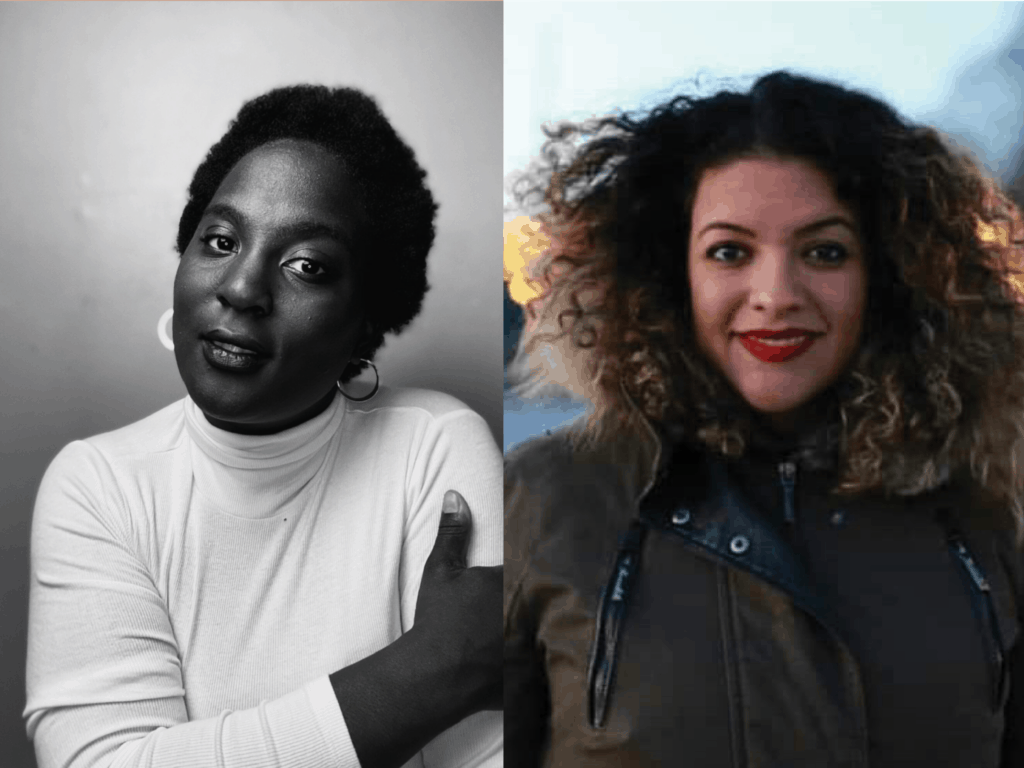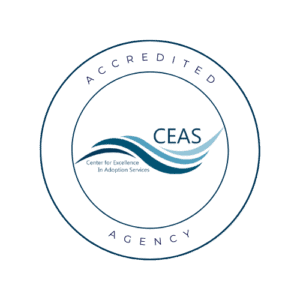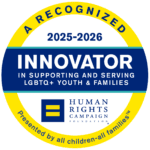Interview with Maryjane Stahr of Ombre Originals LLC, by Jessica M. Luciere
Maryjane Stahr – Owner and founder of Ombre Originals LLC, “As a T.R.A. (transracial adoptee). I grew up without the ability to love my hair. It was hard to handle. The number one issue was not being able to find the right product for my very Dry Hair that was Non-Toxic and Organic. I built Ombre Originals to be able to change the Narrative.”
Jessica M. Luciere is a Colombian transracial adoptee and adoptee advocate living in New York. She works with Spence-Chapin as a consultant and currently manages the Mentorship program of which she is a founding member. Jessica is also the President of All Together Now, a support organization for adoptive families based in Brooklyn.
Jessica and Maryjane sat down to discuss Maryjane’s work with transracial adoptive families and where her passion for haircare education originated. MaryJane will join the discussion “Parenting Across Race: Hair Care and Identity” on February 16, 2021. This event is a great opportunity for adoptive parents to learn about natural hair care for their child(ren). Haircare is a bonding experience and can be a time to discuss adoption and identity with your child. Don’t miss out, register today!
JML: When/Why did you realize that you wanted to create a space to help educate adoptive families surrounding haircare?
MS: As a transracial adoptee myself, I wanted to be the change in something that caused me so much pain. The status of how my hair looked caused so much conflict. I knew it was important as a healing journey to create my own products and platform and make them accessible to the adoption community.
JML: What has been your biggest takeaway in hearing from adoptive families once they understand the importance of knowing how to care for their child’s hair?
MS: It excites me that they want to learn. That they will spend the time to educate themselves.
JML: What are some things that you think all adoptive parents should know about racial and cultural differences they may have with their children?
MS: There is always more to learn, it’s not just 12 steps and that’s it. African Americans are coming out, being bold, and embracing their hair and identity. The world is shifting and changing its thoughts and expectations. Today, we may be able to take a step, the next step could be a month, a year, or years. It is important to follow, educate and be able to take the next steps when it comes.
JML: In your work with adoptive families, what are some of the apprehensions people come to you with when discussing their child’s haircare/identity?
MS: I don’t want to put words in their mouths, but I believe most are afraid they will do it wrong and be ridiculed. I know that parents are trying their best. I am so happy that people are interested in learning more about how to care for their child’s hair in our upcoming event.
JML: What are some of the principles of hair care that you instill into your work with adoptive parents?
MS: Hair is one’s identity. You have to be patient, caring, and loving. African American hair doesn’t get done quick. Time is of the essence. During hair care, make sure you set a long duration.
JML: What do you encourage families to incorporate into their daily lives to create openness surrounding the differences that may exist in their homes? (surrounding race, cultural identity) as it applies to hair/care. What are some ways parents can incorporate hair care, respect, love, education into their families when their child is young, or in their formative years?
MS: I encourage that a child is questioned whether they love their skin/hair. If the question is answered in a negative light, follow it with why. Don’t rebuke, return a response with how you can help change the thoughts. Things such as having control of hairstyles, bows, and inclusive hair time. Buy a doll that has hair just like them and encourage them to do hair together. Buy books on black hair and that represent African American children.
JML: What do you hope for the future of adoption as it applies to the education of racial and cultural identity, respect for one’s uniqueness and uplifting the differences that my exist within the home?
MS: Hair is super important; I can’t stress that enough. I want the world to recognize the importance of hair to African American Hair. Parents need to realize that they must always be learning and teaching themselves new styles. Also learning what styles represent. Hair is unique to each child. The hair on their adoptive parents shouldn’t be compared or flaunted as being better. Create a space, where a child feels comfortable doing their own hair. Buy them their own hair products and tools. Put the tools/ Hair Care in the child’s own drawer and own space. Make sure they know that its for them, specifically for their hair.
JML: What is the best part of your job?
MS: I get to open up about my struggles and change it for every child. I get to see parents eager to learn. I get to answer the questions people are bold to ask.
To follow Maryjane Stahr & Ombre Originals:
www.ombreoriginals.com
@ombreoriginals
@ombreoriginalskids
To follow Jessica M. Luciere:
@jmluciere
Check out Jessica’s Spence-Chapin Mentorship program here.






